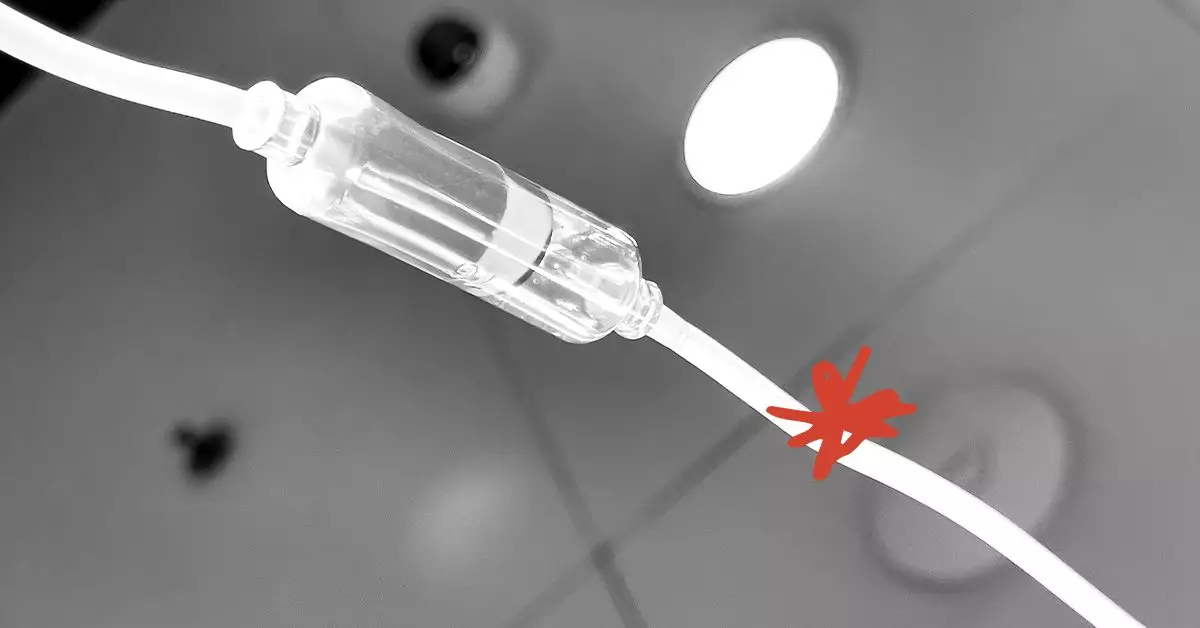Chemotherapy is a common treatment modality for cancer, designed to target and destroy rapidly dividing cancer cells. While this aggressive approach has been pivotal in improving survival rates, it is accompanied by a range of side effects, including a notably increased risk of urinary tract infections (UTIs). The weakened immune system and damaged anatomical barriers that result from chemotherapy not only leave patients susceptible to infections but can also lead to complicating issues related to the bladder and urinary system.
Chemotherapy drugs target not only cancer cells but also healthy cells that are rapidly dividing. This non-specific action can wreak havoc on the immune system, specifically causing neutropenia, a condition characterized by critically low levels of neutrophils, a type of white blood cell essential for fighting infections. As a result, patients undergoing chemotherapy have a diminished ability to fend off common infections, including UTIs. In a striking study from 2022, researchers revealed that over 82% of UTIs in cancer patients occurred during chemotherapy sessions, highlighting a clear correlation between cancer treatment and an uptick in urinary complications.
The repercussions of neutropenia extend beyond just increased susceptibility to infections; the inflammatory response and the associated side effects can severely impact quality of life. When an individual’s body is already fighting a battle against cancer, the added challenge of recurrent UTIs can prove overwhelming and debilitating.
The human body possesses various anatomical barriers, such as skin and mucous membranes, that guard against pathogens. Chemotherapy can inflict damage on these critical defenses, allowing microorganisms to infiltrate and establish infections within the body. This loss of protective barriers in turn increases the threat of UTIs, as normal flora can become opportunistic pathogens.
Furthermore, inflammation and irritation caused by chemotherapy can lead to various bladder-related complications, underscoring the multifaceted risks patients face. Lower urinary tract symptoms (LUTS) are common among chemotherapy recipients, with research indicating that upwards of 70% of these patients may experience problems such as urgency, frequency of urination, and even urinary incontinence.
While UTIs are the most recognized urinary complication associated with chemotherapy, the spectrum of related issues can include cystitis, an inflammation of the bladder often caused by infection, and vaginal dryness, which may predispose patients to further infections. Cystitis can manifest alongside a litany of symptoms, from burning during urination to lower abdominal pain. These complications can exacerbate patients’ discomfort and reduce their overall quality of life, making effective management essential.
Moreover, LUTS can introduce a range of distressing symptoms such as sudden urges to urinate, difficulty in completely emptying the bladder, and nocturia, considerably affecting patients’ daily activities. The interplay between these symptoms may create a cycle of discomfort and emotional distress, potentially impacting adherence to the chemotherapy regimen.
In the face of such complications, proactive management becomes critical. Medical interventions may vary based on the severity and source of bladder issues but can include bladder training techniques, pelvic floor therapy, and, when necessary, surgical options to address underlying anatomical concerns. Patients may also require antibiotics to manage UTIs, underlining the importance of close monitoring by healthcare providers.
Practical self-care measures can also empower patients to manage urinary health. Regular hydration, proper hygiene practices, and avoiding irritants such as caffeine and alcohol can help mitigate symptoms. Conditions like urinary incontinence can often be managed with products designed for comfort and discretion, enabling individuals to maintain a sense of normalcy during a challenging time.
Communication with healthcare providers is vital. Patients who experience urinary complications during chemotherapy should report these symptoms promptly, as untreated UTIs can lead to severe outcomes such as kidney infections or, in extreme cases, sepsis—a life-threatening condition that necessitates immediate medical attention.
While the journey through chemotherapy can be fraught with challenges, fostering awareness and understanding of the risks linked to UTIs and other bladder problems is essential. By taking an active role in their health and maintaining open lines of communication with their medical team, patients can navigate the complexities of cancer treatment with greater confidence and agency.
The relationship between chemotherapy and urinary complications, particularly UTIs, demands attention and proactive management. As more individuals undergo cancer treatments, understanding these risks and implementing effective strategies for prevention and management can profoundly impact their overall experience and quality of life during this critical phase.

